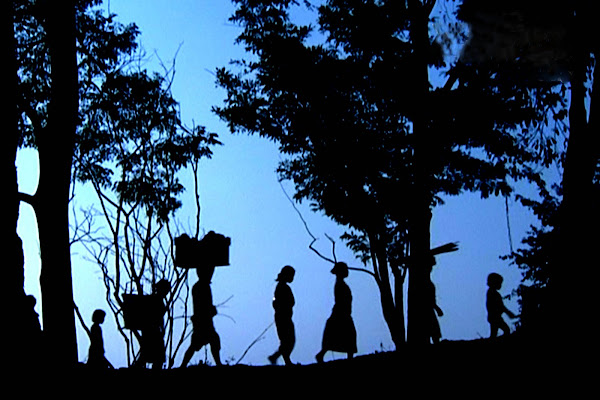Face to Face with Fr. Joseph Pulinthanath,
the Director of Yarwng [Roots]
By Dileep M.M.
Celluloid rarely speaks like oral language, because it is basically a language of visuals. So making a movie that speaks an oral or a marginalized language is a daring venture. Let us take give a bow to Fr. Joseph Pulinthanath for offering us Yarwng, a celluloid voice for a marginalized community: those are evicted in the name of development. This venture by Fr. Joseph sheds some light on the struggles of ordinary people.
What is the motivation for making a film for Tribals?
JP: This is one of the oldest languages of North Eastern India. The film is made in Kokborok language. The tribals of Tripura have suffered social deprivation for long. Any such community must use the advantages of this big medium -Cinema.
Is your movie is an expression of a dying culture?
JP: Yes! I am projecting or expressing a culture. My film can be considered a mirror for many names. We can't express the actual nuances of this language.
So are you trying to provide a platform?
JP: Yes, I suppose. They need one. The people portrayed in the film were evicted from their fertile lands in the name of the very idea we are talking all the time, development.
People of TRIPURA are well known for their political awareness. Whether these tribals are politically motivated?
JP: They are not organized. The political parties neglected these areas in the past. Their accessibility is limited.
Q4. Tribal areas are famous for their cultivation. Isn't it?
Ans. Yes. But their cultivated land, i.e., 'Jhum cultivation' [cultivation on the slope of the hills], and the end products are not marketed enough.
By Dileep M.M
©FIPRESCI 2008
http://www.iffk.keralafilm.com/pgrm_Dileep_day06.htm
Subscribe to:
Post Comments (Atom)

No comments:
Post a Comment